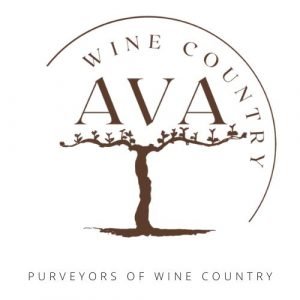The Wine Industry is as much a Calling and a Craft as it is a Science
Grape Growing [Farming]
You start with the Terroir (the soil, the micro-climate and other physical attributes), and then work on the layout of the vines, and the trellises and the irrigation. Next, you need to select the grape varietal and then the rootstock and the clone - all of which can vary across a single vineyard according to the soils and the drainage.
Then you focus on the balance of quality versus quantity for your annual harvest, and how to be nimble in response to the annual fluctuations of Mother Nature (from weather to diseases to pests).
Some people do this all themselves, others outsource all of this to local expert businesses and merely project manage to a greater or lesser degree. Then you either use the grapes yourself or sell them to other winemakers.
Others just let a tenant farmer pay them rent for the privilege of doing all of this themselves.
Wine Making
Once the harvest has been picked and collected into the bins, the next steps are all the domain of the Wine Making profession: Crush; Tank Time; Barrel Time; Blending; Bottling.
This may seem like a simple list, but each item conveys a world of knowledge: both artisanal and scientific. Beware ever thinking that you have learned all that there is to know - as with any other field that has this many variables involved it is rare that you encounter the same identical scenario twice.
Wine Marketing & Sales
It is the Bottling process that passes the baton from the Wine Maker to the Wine Brand. This is now the domain of the process of marketing and selling the wines that have been created.
Every aspect of this should be carefully curated: from the size, shape, color, weight and cost of the bottle, to the method of sealing the bottle (and how that is presented), to the label.
The result is a truly finished product. In a bottle. Ready to Sell. Normally packaged in a case of twelve bottles.
Yet, it doesn’t do the business any good having the wine stuck in a bottle, in a case, on a pallet in a climate controlled warehouse somewhere. Now people need to find out about it and have a way of buying it.
Large volume wine businesses, with significant financial resources and sizeable sales forces, make widespread use of grocery stores, e-commerce online stores and restaurants to reach consumers. They focus very strictly on specific ranges of per-bottle prices that have a high volume of demand.
Smaller volume wine producers, often artisanal in nature and focused on the lower volume and higher per-bottle priced sectors of the market - the premium and luxury sectors. Most of these often family-owned producers lack the same financial resources and sales forces as the big commercial players, yet they still need to be able to find and connect with consumers and to educate them about their wines - which hopefully leaves the consumers wanting to purchase and try them.
The goal is to so impress these consumers with both their experience and the quality of the finished product, that they will then want to buy the wines in quantity, or even regularly. This is where Tasting Rooms and Wine Clubs have really taken off in popularity as a method of serving the needs of these consumers.
Wine Consumption & Collecting
Wine Country Experiences
Wine Country Living
If people did not enjoy drinking wine, repeatedly, then no one would make wine or even grow wine grapes.
Once you start to develop and train your palate, then you are in for the ride of your life! Each person’s palate is different and constantly evolving.
Wine Tasting as a consumer is the entry point into understanding the breadth and depth of the industry and an opportunity to explore the nuances of individual artisans and brands.
The phrase “Wine Country” evokes different concepts and memories for almost everyone, from the scenery to winery tours, to exquisite meals and great company. And rightly so. For the newbie it mostly generates curiosity. The range of experiences available is almost as broad too.
Some experiences also stray into adjacent industries such as Fine Dining, Artisanal Distilleries and Breweries, Resort & Spas or even Music Festivals.
Living in Wine Country provides a depth of experience that merely visiting just cannot convey.
Living here does not have to be a full time thing, but it does need to be a part time thing - so, getting away to your vacation home for a week or two at different times of year is just the ticket for rejuvenating yourself.
“Wine makes daily living easier, less hurried, with fewer tensions and more tolerance.”






